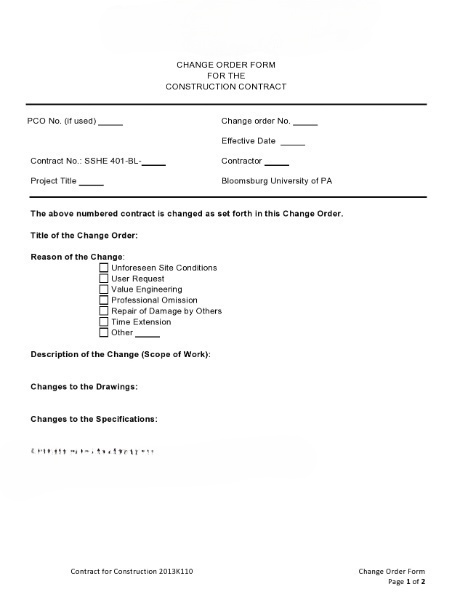Variations in construction contracts is an alteration in the main contract. It is also known as variation order or change order. Most projects have a variation clause in the main contract. Variations is done at the pre-defined prices. All construction projects need variation at some point.
A sample change order is shown below.

Changes to building and construction contracts can be made either at the design stage or at the execution stage. If this is done at the design stage, it does not affect the contractor. But when changes are made during execution, it affects the contractors due to change in the scope of work.
A variation in a construction contract refers to a change or alteration made to the original terms of the contract. There are many reasons that variations might occur, including changes in the client’s requirements, technological advancements, and changes in the design. Variations might include changes to the design, quantities required, quality required, working conditions, or sequence of work. In order for a variation to be legally binding, it must be supported by consideration (payment) and be in accordance with the express terms of the contract.
The valuation of variations may be based on rates provided by the contractor in their tender, or it may be based on the actual costs incurred by the contractor. The method of valuation will depend on the specific terms of the contract and may be subject to negotiation between the contractor and the client.
